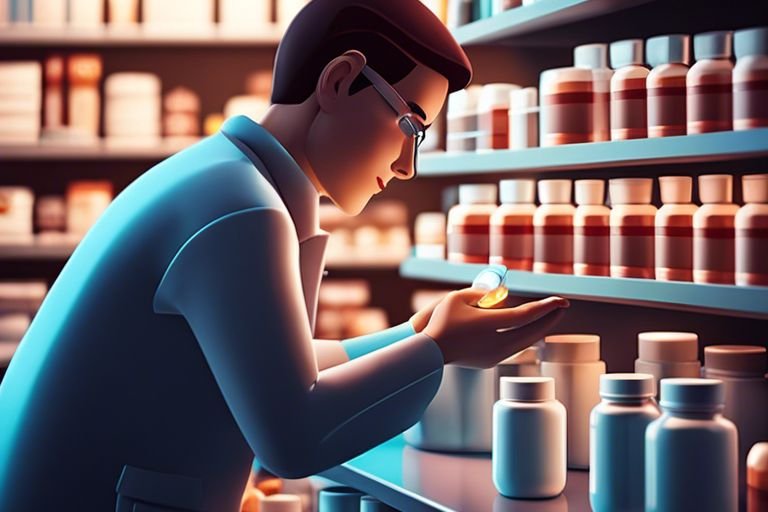Just as important as it is to manage your prescribed medications for your health, understanding the potential impact on your liver is crucial. Some medications can be harmful to your liver, leading to serious complications if not managed properly. By being aware of the potential risks and implementing safe practices, you can help protect your liver from any harm that might come from your medications. In this guide, we will provide you with crucial tips and strategies to safely manage your liver’s health while taking medication, ensuring that you prioritize your overall well-being.
Factors Affecting Liver Health in Relation to Medication
To maintain a healthy liver while taking medications, it is crucial to consider various factors that can impact its function. Factors such as the type of medication, dosage, duration of treatment, and individual liver health play a significant role in determining the overall impact on your liver. It is imperative to be aware of how medications can affect your liver and take necessary precautions to safeguard its health.
Types of Medications and Their Effect on the Liver
To understand how different medications can affect your liver, refer to the table below.
| Types of Medications | Effect on the Liver |
|---|---|
| NSAIDs | Can cause liver inflammation |
| Statins | May lead to liver enzyme abnormalities |
| Acetaminophen | Can cause liver damage if taken in high doses |
| Antibiotics | May result in drug-induced liver injury |
| Chemotherapy drugs | Can cause liver toxicity |
It is important to be cautious with medications and their potential impact on your liver. Assume that any medication you take can affect your liver function, and always consult your healthcare provider before starting a new medication.

Pre-existing Liver Conditions and Medication Management
With pre-existing liver conditions, managing medication becomes even more critical. Relation between the medication and liver health needs to be carefully monitored to prevent further damage. Patients with liver conditions should be extra vigilant about the medications they take, as some drugs can exacerbate existing liver issues.
It is crucial for individuals with liver conditions to work closely with their healthcare providers to develop a safe and effective medication plan. Adjustments may need to be made to dosage or type of medications to ensure that the liver is not further stressed or harmed. Regular monitoring of liver function tests is imperative to track any changes and address them promptly.
By understanding how medications can affect your liver and taking proactive measures to safeguard its health, you can preserve your liver function and overall well-being. Always prioritize liver health when managing medications, and seek guidance from healthcare professionals for personalized recommendations.

How-To: Safely Manage Medication for Optimal Liver Health
Tips for Safe Medication Use
Health 13 Tips on How to Have a Healthy Liver begin by ensuring safe medication use. It is crucial to take medications as prescribed by your healthcare provider, following the recommended dosage and schedule. Always read the labels and inserts that come with your medications, and avoid mixing medications without professional guidance. Additionally, be aware of the potential side effects of the medications you are taking and report any concerns to your healthcare provider immediately.
- Take medications as prescribed
- Read labels and inserts
- Avoid mixing medications without guidance
- Be aware of potential side effects
- Report concerns to healthcare provider
The ultimate goal is to maintain optimal liver health and prevent any harm that can result from unsafe medication practices. The liver plays a crucial role in metabolizing medications, so taking precautions is crucial to avoid any potential liver damage. The liver’s health should be a top priority in your overall well-being.
When to Consult Healthcare Providers
Tips on when to consult healthcare providers are crucial for maintaining optimal liver health. It is crucial to seek medical advice if you experience any unusual symptoms or side effects from your medications. Additionally, if you notice any changes in your liver function tests or have a history of liver disease, it is important to consult with your healthcare provider promptly. The liver is a vital organ that requires careful monitoring when managing medications.
Understanding when to reach out to your healthcare provider can prevent serious complications and ensure your liver’s health remains protected. Your healthcare team is there to support you in maintaining a healthy liver while managing your medications effectively.
Lifestyle Contributions to Liver Health
Now, it is vital to be aware of the impact of lifestyle choices on your liver health. Managing your medications properly is crucial; for more information, you can check out Managing Your Medications with Liver Disease.
Dietary Considerations and Liver Support
With a focus on dietary considerations and liver support, it is vital to maintain a healthy weight through a balanced diet rich in fruits, vegetables, lean proteins, and whole grains. Avoiding excessive alcohol consumption and minimizing processed foods high in trans fats and sugars can also support liver health.
The Role of Exercise in Liver Function
Liver function can greatly benefit from regular physical activity. Exercise helps in maintaining a healthy weight, reducing fatty deposits in the liver, and improving overall blood circulation and metabolism. Aim for at least 30 minutes of moderate exercise most days of the week to promote optimal liver function.
Foods that are particularly beneficial for liver health include foods high in antioxidants such as berries, nuts, and seeds. Additionally, incorporating foods rich in omega-3 fatty acids like salmon and flaxseeds can help reduce inflammation and support liver function. Remember to consult with your healthcare provider before making any significant changes to your diet or exercise routine.
Conclusion
To wrap up, it is crucial to be aware of the potential impact of medications on your liver’s health. By taking proactive steps such as discussing medication options with your healthcare provider, monitoring for signs of liver damage, and following dosage instructions carefully, you can safely manage your liver’s health. Always prioritize communication with your healthcare team and be attentive to any changes in your body while taking medications. Do not forget, a well-informed approach to medication management is key to maintaining a healthy liver in the long run.










